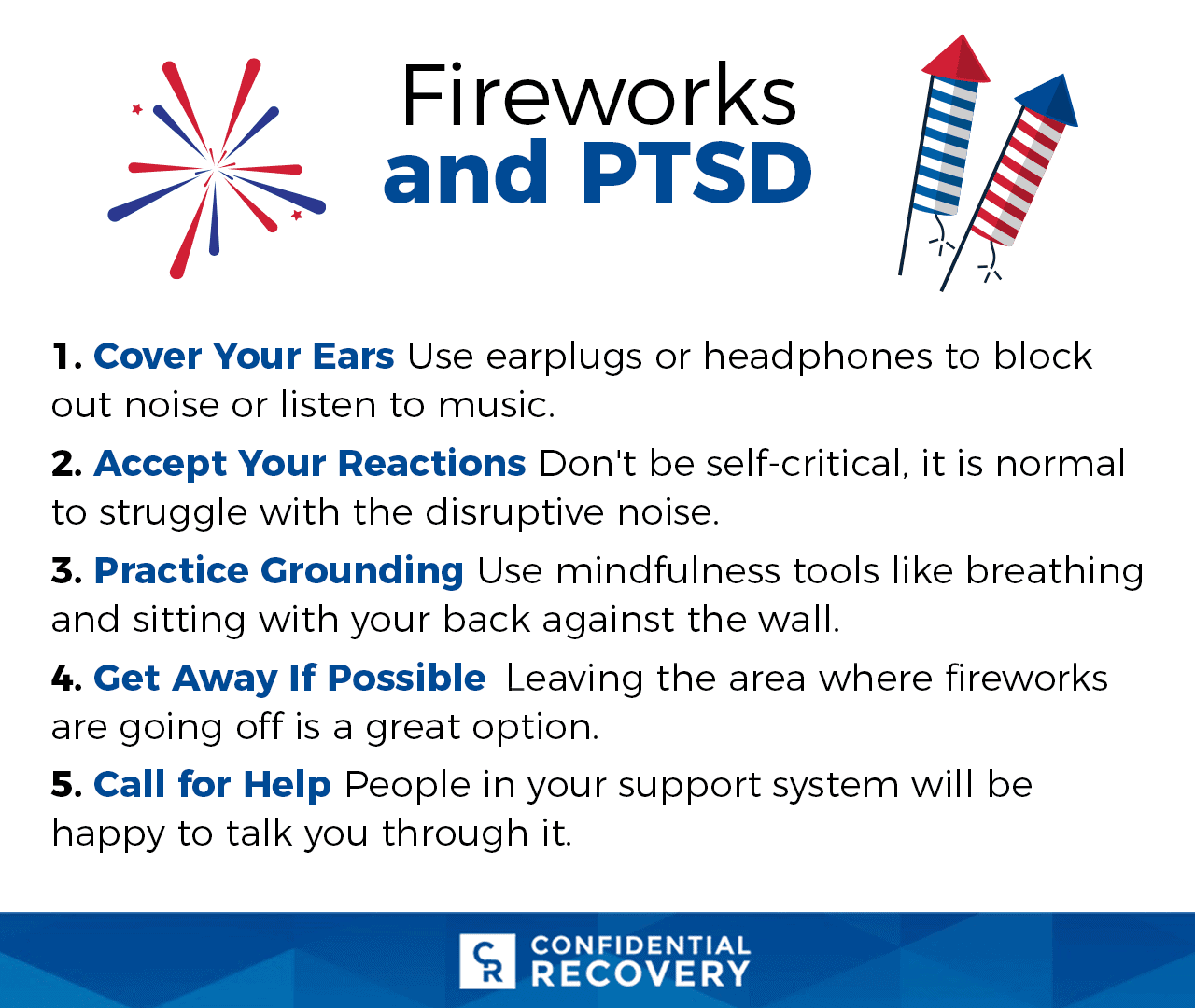
Fireworks And Coping With PTSD
Have you been hearing a lot of loud, unexpected fireworks the past few weeks? For many people, the 4th of July (and the days leading up to it) is a time to celebrate and set off fireworks. For some people, this means going out to the country and finding illegal fireworks to bring back to their town or city. Many people may enjoy setting off these loud, dangerous fireworks at all times of day and night. They don't likely realize some people experience genuine distress due to the unexpected sounds. For people who have PTSD, especially veterans and others whose trauma involved loud noises or gunfire, these fireworks can trigger unwanted symptoms.
Fireworks Can Be PTSD Triggers
This year it seems there are more illegal fireworks than ever infiltrating our cities. The fireworks are loud and go off even during the middle of the day. It’s become a widespread problem but there seems to be little enforcement of fire codes. How can a person with PTSD cope with the triggers that these sounds create? And how can their loved ones help them get through it?
A few years back, a news story featuring a Marine with PTSD put out a yard sign alerting his neighbors. “Combat Veteran Lives Here. Please Be Courteous with Fireworks.” In an interview with NBC News, he explained that his motivation was to spread awareness and about PTSD triggers that veterans often experience. While this veteran did help spread awareness, it’s hard to expect that people with PTSD out themselves to the whole neighborhood just to get relief. And even if you’re willing to ask for courtesy, it doesn’t mean that the courtesy will be automatically extended. (You can, however, pick up your own sign here.)
However, there are some other ways to cope with fireworks during this season. Let's take a look at some of them.
PTSD and Trigger Coping Skills
Coping with PTSD is something you probably have learned to do, bit by bit. The time around the 4th of July may cause you stress, but you’re strong, and you’ll get through it. Here are some things you can do to make things a little easier:
- Talk to neighbors about their plans if you’re friendly with them. While you can’t be expected to go door-to-door if you are close with neighbors you can ask them to keep the fireworks only to the 4th of July itself during a specific time frame.
- Invest in noise-canceling headphones or heavy-duty earplugs. At night, these can be especially useful if rogue fireworks are going off all over your city or town.
- Invest in a white noise machine. Paired with headphones or earplugs, you can use these tools to get sleep at night.
- Consider taking a trip. If your relatives or friends live in suburban areas, they are less likely to have fireworks going off all the time. A short sabbatical can help you recuperate.
- Practice grounding techniques to keep you in the present. Mindfulness meditation can be helpful. You can also practice keeping a rubber band around your wrist and snapping it when you find yourself having anxiety or flashbacks.
- Be kind to yourself and accept your reactions. You’re not perfect, and you can’t always control your reactions or emotions. Accept yourself for who you are and where you are in your life today. When things are difficult, they will pass. Sometimes you just have to get through to the other side.
- Download an app to help you with self-care. One that is built to help veterans with PTSD is called PTSD Coach, and you can find it in your phone’s app store.
- Reach out to your support network! You're never alone, even when you feel alone. Somebody can help talk you through your feelings and reassure you that you're going to be ok.
PTSD can be frightening and overwhelming for people who have survived trauma. Everyone copes in different ways, so choose what works for you and leave the rest. You ARE a survivor, you ARE important, and you DO deserve to live life fully and completely. When you are feeling upset, this too shall pass. Practice being gentle with yourself until you are feeling better.
Getting Help
Are you struggling with PTSD, alcohol, or substance abuse? Do you want more out of life? Asking for help requires strength. We can help you get your life back together, in a discreet, caring, and safe environment. The staff at Confidential Recovery includes veterans in recovery who can offer their experience as guidance. We offer counseling and support as we help our clients chart a path to recovery.
Contact us at 619-452-1200 to find out more about how we can help you reclaim your life. All calls are 100% confidential.
Categories
Confidential Recovery News San Diego Interventions